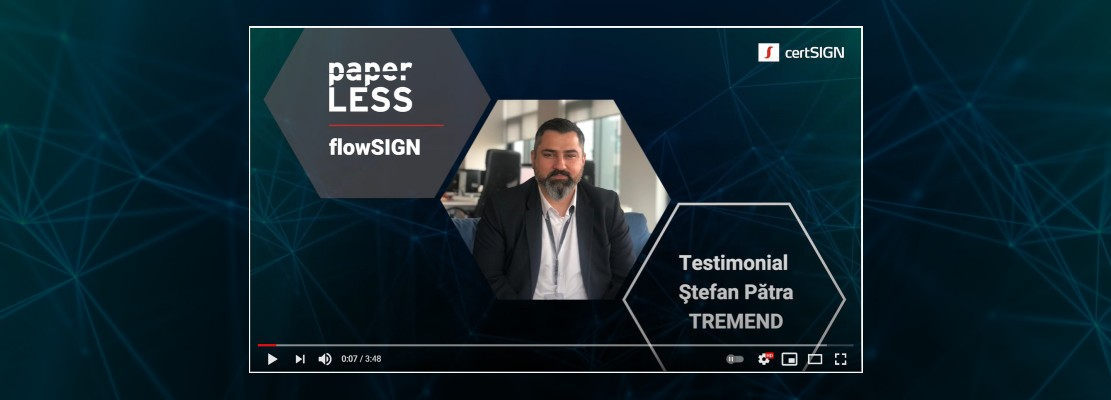Tremend, one of the most dynamic companies on the technology market, with an international presence and over 15 years of experience in providing software engineering and consulting services, has decided to digitize the operations of the HR department. For the implementation of the qualified electronic signature, the company chose the Paperless flowSIGN service, offered by certSIGN.
In the range of products they offer to customers there are solutions, especially in the financial area, in which the security and trust services developed by certSIGN are successfully integrated.
Due to the restrictions imposed by the pandemic on limiting physical interactions in particular, but also the fact that the number of employees is constantly growing, Tremend management concluded that it is necessary to digitize one of the vital departments for any company – HR.
With the help of the Paperless flowSIGN remote electronic signature service, the company’s processes have become more efficient, having 100% legal value, due to the fact that the qualified electronic signature is the only type of signature legally equivalent to the handwritten one, according to eIDAS European Regulation 910/2014. Moreover, the time for generating, signing, sending documents has been reduced, which implies a gain in the decision-making process regarding the contracting of new resources or the extension of existing collaborations.
More details about the successful implementation of the Paperless flowSIGN remote electronic signature solution can be found in this testimonial interview with Ştefan Pătra (VP Financial Services Tremend).
Digitization solutions offer benefits on several levels, and one of them is the ecological one, due to the fact that resources such as paper or ink are no longer used for printing. These ultimately translate into more environmentally responsible behavior, but also a considerable reduction in costs.
Archiving is also one of the great advantages of using an electronic signature, as documents signed in this way must be kept exclusively in the digital environment. A classic archiving involves high costs with storing and keeping documents in special conditions, occupying a physical space, but also a much more difficult consultation of the archive.
But electronic archiving involves a 67% reduction in costs compared to physical archiving, which is extremely important considering that the HR department is one of the largest consumers of paper, and archiving in this case keeps documents for very long periods of time – up to 75 years, as is the case with employment contracts.

